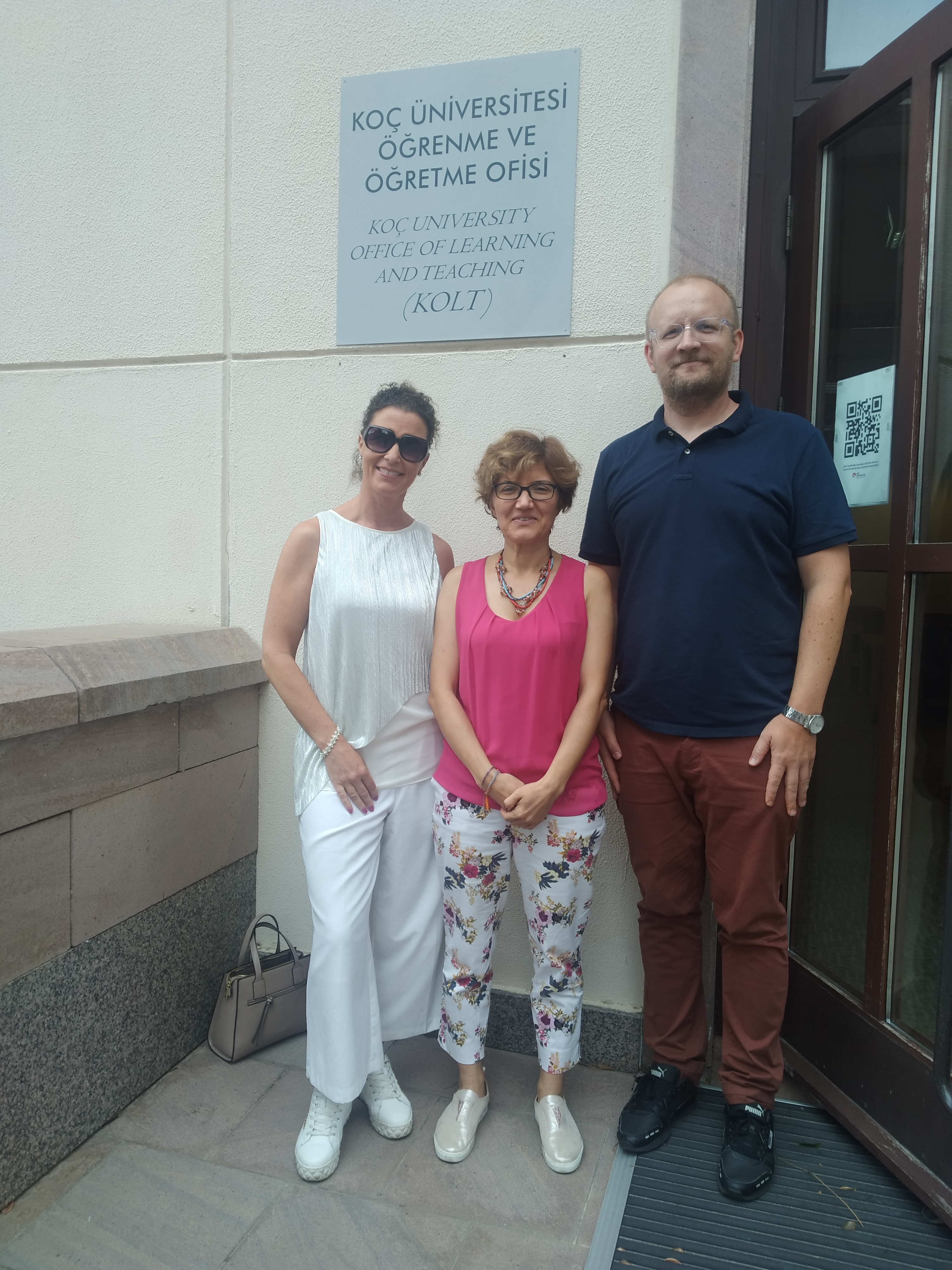The UNIC website uses cookies to improve your experience. Read our full Cookie Policy here.
Dr. ZUHAL ZEYBEKOĞLU is the Director of the Koç University Office for Teaching and Learning. Together with Dr Staunton Ciara, Déirdre O'Byrne and Larysa Samosonok from University College Cork and Asst. Prof. Marcin Gońda from the University of Lodz, they contacted a small-scale needs analysis study identifying upskilling and reskilling needs of middle-aged Ukrainian immigrants to foster their adaptation to host countries.
In this interview, we discuss Zuhal's work, and how UNIC's Seed Fund helped foster new connections and new collaborations in their research. Edited Excerpts:
What inspired you to apply for a UNIC seed fund?
The possibility of working with people with diverse backgrounds around a common interest inspired me to apply for this fund. I am always amazed by the hidden team synergy built through collaborations that start small but gradually turn into something bigger, more creative, and impactful as people from different disciplines, institutions, and professional cultures get to know each other. As a non-traditional researcher with a solution-oriented mindset, I like being part of collaborative projects that seek practical value-added solutions for challenges that institutions, societies, communities, and people face in this so-called VUCA world -volatile, uncertain, complex, and ambiguous.
What is engaged research to you?
We need different actors to tackle the challenges of the world. For sure, seats are always available for scholars. However, we also need people who apply research methodologies in their tasks and duties and gain experience by doing, working, or engaging with more practical and daily-life challenges of something for a long time in NGOs, governmental organizations, or companies. These people stand out with their curiosity, open-mindedness, and the meaning and relevancy they attach to doing something valuable that contributes to their communities, societies, and the world, maybe, in a bigger picture. We need their perspectives as well, and to me, engaged research is the collaboration of all such actors with diverse backgrounds, interests, expertise, and experience, working head-to-head, learning, and sharing with each other to analyse real-life challenges by following a scientific research process. The collaborative and inclusive nature of engaged research promotes the synergy I mentioned earlier.
 The project group for Dr. Zuhal's UNIC Seed Fund during their first meeting at Koç University
The project group for Dr. Zuhal's UNIC Seed Fund during their first meeting at Koç University
What have you learned from collaborating with other researchers from UNIC universities?
I have the privilege to work with Dr Ciara Staunton, Deirdre O’Byrne, Larysa Samosonok from UCC and Asst. Prof. Marcin Gonda from the University of Lodz for the seed fund project. I should thank them for their timely and systematic work, support, and motivation throughout the process. Once again, I have learned the importance of establishing mutual trust and respect in collaborative work. It is the essence, like glue, holding people together who have never met before. Ciara, Deirdre, Marcin, Larysa, and I met through UNIC network and worked collaboratively for the first time. It was a joy to gain new and broader perspectives and learn from different professional attitudes that facilitate the research process.
Why should others embark on an Engaged Research journey?
I strongly recommend engaged research to all types of researchers interested in building partnerships with “others” whose engagement with the challenge at hand is different than theirs. Engaged research helps you approach the same problem from several vantage points that can be missed when you work alone.
How is engaged research perceived in your department?
I am the director of learning and teaching centre at Koc University. My position does not require me to get involved in conducting scholarly research. But I love research that especially has practical implications. I have a Ph. D in education, know research methodology, and have substantial expertise and experience in higher education. I am working with a team experienced in conducting educational research. None of us are traditional researchers in the office, but conducting research is something that we care about, especially the ones that could have a significant impact on communities, societies, and institutions with an interest in advancing learning and teaching for all students, teachers, adults, etc.
UNIC HEI Award 2025: Two Outstanding Courses Recognised for Inclusive ...
The UNIC Alliance is pleased to announce the winners of the UNIC HEI Award 2025 – Best Practic...
08 Jan 2026
Read more »Call for Submissions: UNIC Thematic Lines CityLabs Award 2026
Deadline: 16 March 2026 (23:59 CEST)
06 Jan 2026
Read more »RUB Centre for City Futures opens in Bochum, Germany
The UNIC Centre for City Futures (CCF) is a change agency bringing universities and cities tog...
18 Dec 2025
Read more »